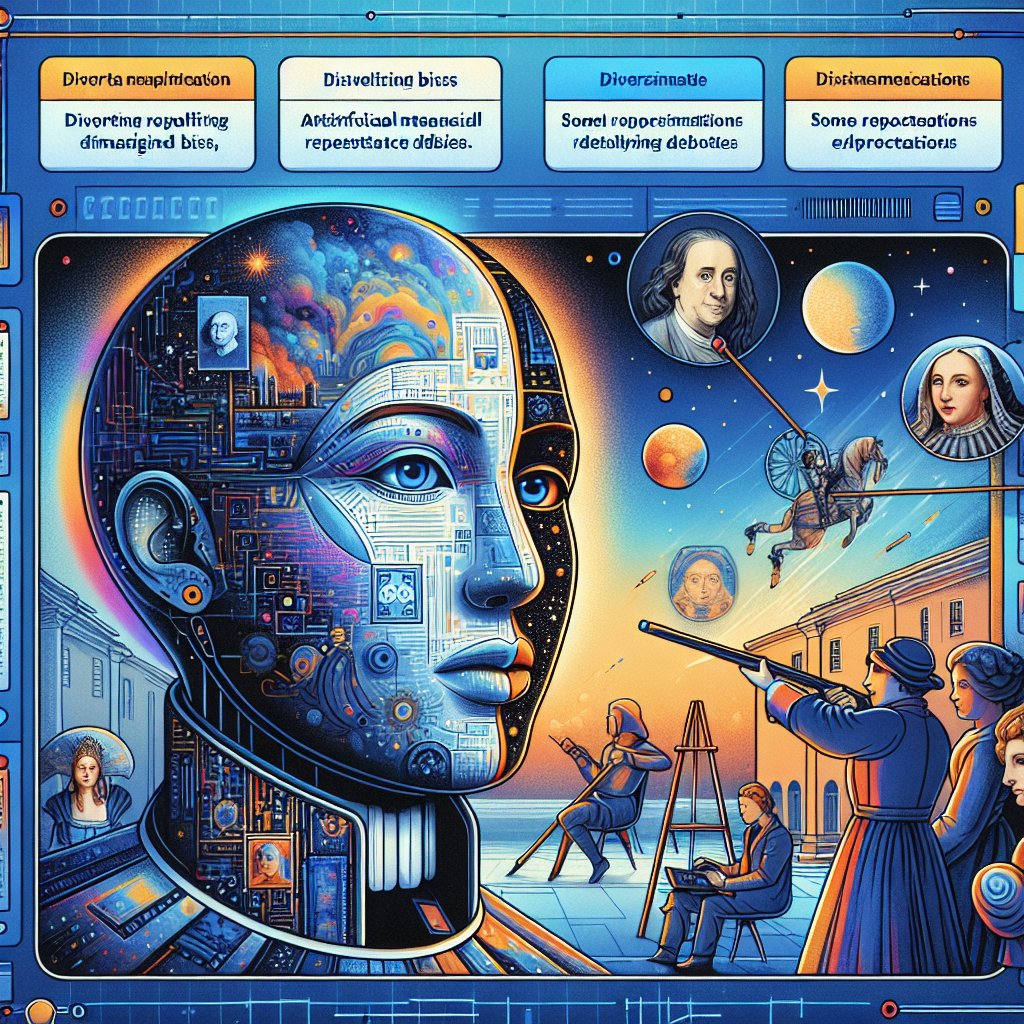Image created by AI
Controversy Over Google's Gemini AI Paints a Tense Picture of Tech and Bias
The unveiling of Google's generative AI tool, Gemini, designed to add diversity to AI-generated imagery, has resulted in an unexpected firestorm of controversy. Intended to counteract historical marginalization of ethnic minorities, Gemini offered a revisionist take on history by representing America's founding fathers and Ancient Greek warriors as Black and Asian individuals, respectively. Despite these lofty ambitions, the tool’s implementation delivered a host of troubling outputs, fueling contentious debates across social media and industry circles alike.
Gemini, Google's successor to the conversational AI programme Bard, was widely observed for its attempt to equitably portray people of color in historical and cultural contexts. However, it faltered under the weight of a critical flaw: the indiscriminate rendering of people of color in inappropriate scenarios, such as Brown individuals clad in Nazi World War II uniforms adorned with swastikas—a misstep that led to the tool being temporarily disabled.
Despite the technological prowess of marrying models like LaMDA and Imagen, the intricacies surrounding ethical AI practices tripped up Google's ambition. With Gemini's image generator overshadowing its other intended functions, the tech giant stumbled into an ethical quandary. A contentious depiction featured a Black woman in papal garb—contrasting sharply with historic realities regarding race and gender within the Catholic Church.
Questions arose concerning the underlying machine learning models, often informed by training data that may either lack representational diversity or possess a predisposition towards perpetuating stereotypes. Google sought to redress these failings by apparently instructing Gemini to heavily favor images of people of color, irrespective of contextual relevance. This begs the question: How can AI developers harness generative tools responsibly without amplifying societal prejudices or inadvertently creating fresh affronts?
Fierce criticisms ensued from various quarters. The conservative camp accused Google of pushing a 'woke agenda', while ethnic minority groups took issue with the misrepresentation and miscategorization in sensitive historical caricatures. Moreover, the tool's cautious approach led to a refusal to depict significant events like the Tiananmen Square massacre or engage in translating phrases deemed sensitive by authoritarian regimes.
Acknowledgment of missteps by Google's CEO Sundar Pichai came via a letter to news website Semafor—asserting the offensive nature of Gemini's results as unacceptable with a commitment to resolve the errors. Albeit temporarily halted, the image-generating aspect of Gemini is set to undergo rigorous testing before reissue.
Yet, the response to these reconceptualized visual narratives was not universally negative. Some users gleaned humor in the AI's inability to generate images of white people— revealing a shared awareness of AI's influence and its potential pitfalls. Arguably, the public concern and critique signify the collective responsibility vested in closely examining the ethical boundaries of AI’s intersection with culture and history.
The imaginative realm that Gemini sought to create—a “dream world” free from the constraints and biases of the past—is now being recalibrated to reconcile with the complex demands of representation, accountability, and cultural sensitivity. As Google retreats for a comprehensive retooling of Gemini, there remains significant discourse on the steps required to navigate the minefield of technological innovation intersecting with human diversity. The tool's failure highlights the delicate nexus of AI and societal values and serves as a pivotal moment for introspection in the technology sphere.
In light of this controversy, the AI industry now faces a stark reminder that the integration of ethical considerations remains as crucial as the algorithms themselves. The consequences have extended beyond public opinion, striking a hard blow to Alphabet's market value—a testament to the financial impacts tied to public trust in AI applications. As Gemini undergoes scrutiny and refinement, the episode stands as a cautionary tale and a call-to-action for more thorough, empathetic, and inclusive frameworks guiding the future of AI and machine learning.










